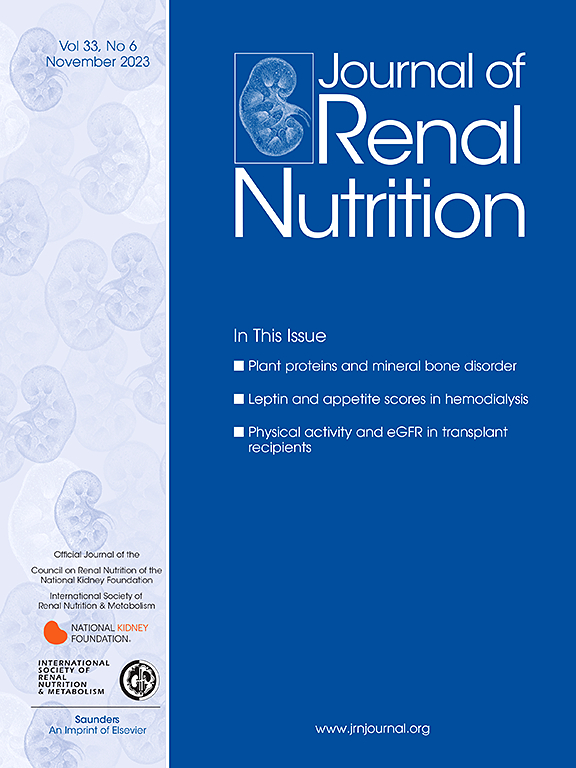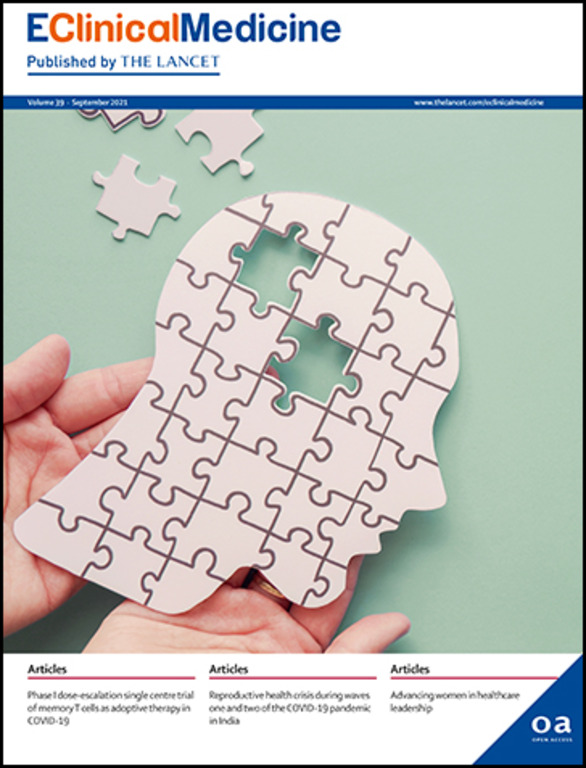Kidney Stone
How to submit an article:
- Registered users can submit any published journal article that has a unique DOI (Digital Object Identifier) name or link to Research Hub.
- For example, you can paste the full DOI link:
https://doi.org/10.1109/5.771073or just the DOI name:10.1109/5.771073into the field above and click submit. - The person who is first to submit a valid article to Research Hub will forever be credited for it, and every article submission earns you +6 Research Points.
Published research studies are articles that present the findings of original research that has undergone a peer-review process and has been made publicly available in scholarly journals, books or other media.

Plant-Based Milk Alternatives and Risk Factors for Kidney Stones and Chronic Kidney Disease
2022 May Journal of Renal Nutrition Borin JF, Knight J, Holmes RP, Joshi S, Goldfarb DS, Loeb S
The study found that oat, macadamia, rice, and soy milk compare favorably with dairy milk in terms of kidney stone risk factors, while almond and cashew milk have more potential stone risk factors. Coconut milk may be a favorable substitute for patients with chronic kidney disease based on low potassium, sodium, and oxalate.
Experimental Study Coconut Milk Kidney Stone Chronic Kidney Disease Plant Milk Cashew Milk Nuts Almond Milk
Health Benefits of Coconut Water
2022 Jan Reference Series in Phytochemistry Rethinam P, Krishnakumar V
Review Article Cardiovascular Disease High Blood Pressure OsteoporosisCoconut water possesses unique compound profiles that imbue it with a broad spectrum of medical properties, incorporating aspects of nutrition, pharmacology, and disease prevention.

Fresh lemon juice supplementation for the prevention of recurrent stones in calcium oxalate nephrolithiasis: A pragmatic, prospective, randomised, open, blinded endpoint (PROBE) trial
2022 Jan EClinicalMedicine Ruggenenti P, Caruso MR, Cortinovis M, Perna A, Peracchi T, Giuliano GA, et al.
Fresh lemon juice supplementation, in addition to a standard diet, may potentially prevent stone recurrence in patients with calcium-oxalate nephrolithiasis, with explorative analyses showing a significant reduction in recurrence at one-year follow-up. However, decreasing adherence to lemon juice supplementation over time may reduce its efficacy.
Randomised Controlled Trial Calcium Oxalate Kidney Stone Lemon
Role of Citrus Fruit Juices in Prevention of Kidney Stone Disease (KSD): A Narrative Review
2021 Nov 17 Nutrients Barghouthy Y, Somani BK
Grapefruit juice was identified as a risk factor for stone formation in large epidemiological studies, while orange juice was not associated with an increased risk for KSD. Orange and grapefruit juices had an alkalinizing effect on urine, while lemon juice raised urinary citrate levels but lacked a significant alkalinizing effect.
Systematic Review Review Article Grapefruit Juice Kidney Stone LemonResearch insights are moderated by the Research Hub team and offer an at-a-glance overview of interesting research findings.

2022 Reference Series in Phytochemistry
Coconut water possesses unique compound profiles that imbue it with a broad spectrum of medical properties, incorporating aspects of nutrition, pharmacology, and disease prevention.
Review Article Cardiovascular Disease High Blood Pressure Osteoporosis
Health Benefits of Coconut Water
Rethinam P, Krishnakumar V
Review Articles
Review articles summarise and critically evaluate the current state of research on a specific topic or field by synthesising multiple primary research studies.

Health Benefits of Coconut Water
2022 Jan Reference Series in Phytochemistry Rethinam P, Krishnakumar V
Review Article Cardiovascular Disease High Blood Pressure OsteoporosisCoconut water possesses unique compound profiles that imbue it with a broad spectrum of medical properties, incorporating aspects of nutrition, pharmacology, and disease prevention.

Role of Citrus Fruit Juices in Prevention of Kidney Stone Disease (KSD): A Narrative Review
2021 Nov 17 Nutrients Barghouthy Y, Somani BK
Grapefruit juice was identified as a risk factor for stone formation in large epidemiological studies, while orange juice was not associated with an increased risk for KSD. Orange and grapefruit juices had an alkalinizing effect on urine, while lemon juice raised urinary citrate levels but lacked a significant alkalinizing effect.
Systematic Review Review Article Grapefruit Juice Kidney Stone LemonClinical Trials
Clinical trials are research studies that involve people and are conducted to evaluate the safety and efficacy of new treatments or interventions, such as drugs, medical devices, or behavioural therapies.
Study Protocols
Published study protocols are detailed plans that outline the objectives, methodology, statistical analyses, and organisation of a research study that have been made publicly available for others to review and use as a reference.
Presentation Slides

Review Article
Coconut water possesses unique compound profiles that imbue it with a broad spectrum of medical properties, incorporating aspects of nutrition, pharmacology, and disease prevention.
Rethinam P, Krishnakumar V
Executive Summary
Write an executive summary in the form of a blog article on the topic of "Research into Chinese medicine treatment for Kidney Stone" summarising the research below and using language that can be easily understood by patients and avoiding medical jargon using a professional and caring tone of voice.
Write an executive summary in the form of a blog article on the topic of "Researched Chinese medicine treatments for Kidney Stone" summarising the research below in an objective and easy to understand way, and using language that can be easily understood by patients. Group the article into Chinese medicine treatments first, followed by nutrition and other treatments. Avoid using medical jargon and use a professional and caring tone of voice.
Write me a concise but easy to understand executive summary on the topic of "Chinese medicine treatments for Kidney Stone" based on the following research that I will give you. Your summary should be 2 paragraphs long in Australian English spelling and include references to the studies.
A Review Article published in 2022 in the journal Reference Series in Phytochemistry found that Coconut water possesses unique compound profiles that imbue it with a broad spectrum of medical properties, incorporating aspects of nutrition, pharmacology, and disease prevention. The study utilized comprehensive analysis to assess the chemical profile of coconut water, identifying a range of components including phytohormones, enzymes, antioxidant compounds, vitamins, minerals, and phenolic compounds. These components are known to contribute to the water's biological activity and pharmacological effects, thereby enabling a raft of medicinal properties inherent to coconut water. The water was found to feature anti-microbial, anti-bacterial, anti-inflammatory, anti-hypertensive, rejuvenating, hepatoprotective, hypolipidemic, and diuretic properties. An examination of the therapeutic effects of coconut water revealed a significant impact on gastric dysfunction, dysentery, and child malnutrition alongside notable capabilities to manage hypertension. The water was found to promote exercise performance, reduce swelling, dissolve kidney stones, improve kidney function, improve digestion, relieve constipation, reduce the risk of heart disease, lower high blood pressure, and improve cholesterol levels. Consumption of tender coconut water was specifically found to reduce the risk of heart disease, help prevent Alzheimer’s disease pathologies and prevent osteoporosis in experimental animals. The unique nutritional profile of coconut water was also found to provide it with the capacity to balance body chemistry and fight cancer.
Moderation Tools
Topic
Sign In
Users not signed in are limited to viewing the 5 most recent items of content.